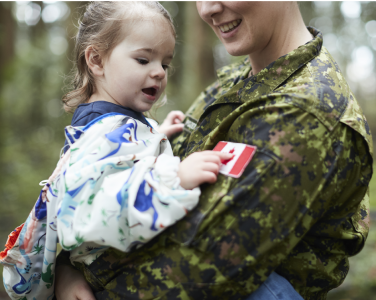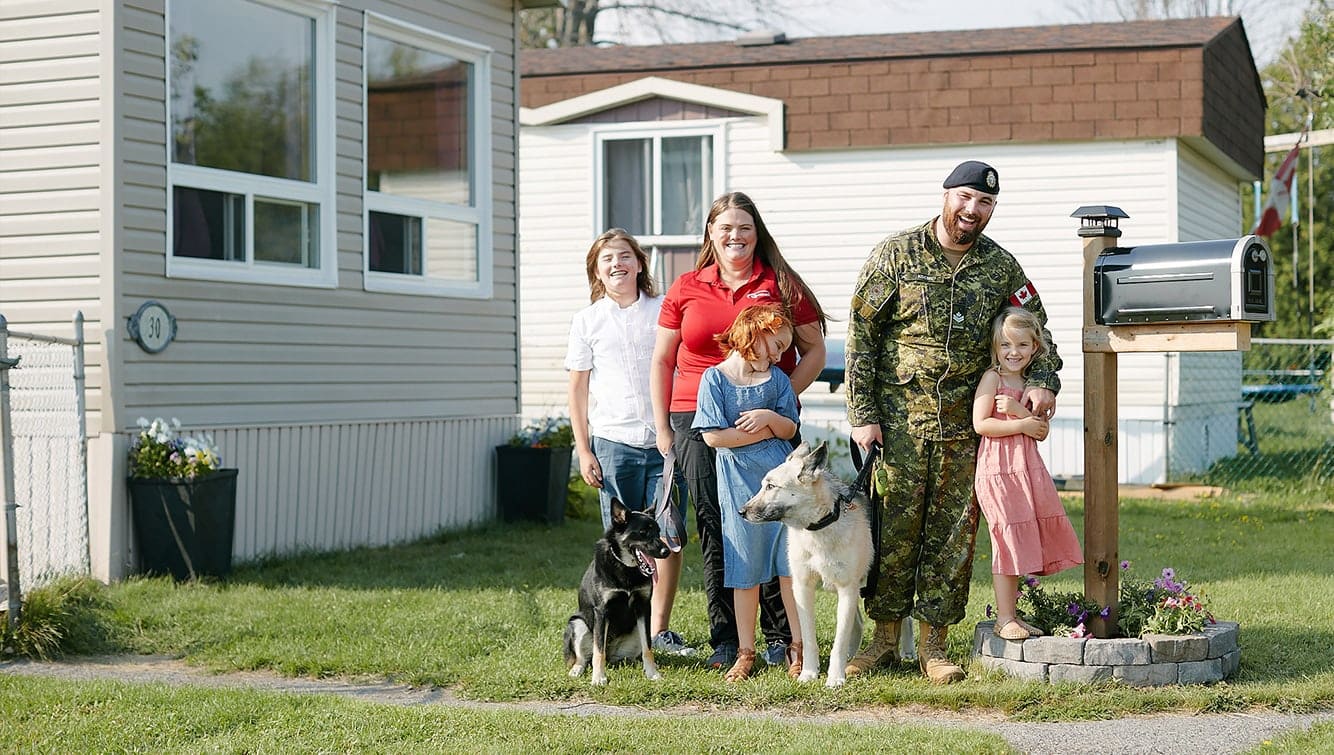








FAQs
-
My loved one is heading to basic training, what do I need to know?
Visit www.cmrsj-rmcsj.forces.gc.ca/fe-fs/faq-faq/faq-faq-eng.asp#reninf for more information about military education, graduation ceremonies, contacting their loved one in case of emergency and how to send mail or parcels to them. Family Information Line counsellors can provide assistance in navigating this website to help answer the questions you may have at any time. We also recommend the Family Guide to the Military Experience for families who may not be familiar with the military lifestyle. This handbook is accessible and can help parents prepare for what’s to come.
-
My loved one has an Operational Stress Injury, who do I turn to?
Operational Stress Injuries (OSI) are difficult not only for the person who is experiencing them but for the family members as well. When a loved one is struggling with an OSI, it can be difficult to figure out how to help and how to adapt to the change in family dynamics. If you are feeling overwhelmed, helpless or exhausted, Family Information Line counsellors are here 24/7 to listen, to provide guidance and to connect you with resources that may be of benefit to you, your family and the person experiencing the OSI.
To help you better face the reality of an OSI, we aim to connect the family with mental health professionals that can provide ongoing support either through the Canadian Forces Members Assistance Program (CFMAP), the Military Family Resource Centre or in a community setting. We provide information and referrals to educational materials such as the Virtual OSI Resource for Caregivers and National Defence Publications which supports families in developing a greater understanding of OSIs. We also provide referrals to the Operational Stress Injury Social Support program and discuss the benefits of connecting with others who may be experiencing a similar reality. For the families who are in the process of medically-releasing from the CAF, we provide information and material on the release process.
Connecting with the Family Information Line and your local Military Family Resource Centre are first steps towards building a greater support system for your family. -
How can I best support my children through a posting transition?
A posting can be a source of stress for families as it can involve the uprooting of the family from their support system and familiar environment to a different place with its new set of challenges. Proactively planning towards a positive integration into the new community can provide reassurance during this transition period. We recommend connecting with the future Military Family Resource Centre as soon as possible to gather information and tips on the new posting location. Exploring social activities hosted at the new site and possibly even a family pairing program can be of benefit as well. Reaching out to the guidance counsellor at the Children Education Management program when a posting occurs between different provinces or territories program can also help prepare for a smooth transition from one school board to the next. Family Information Line counsellors can provide assistance in accessing these organizations and talk things through at any time, day or night.
In terms of the family’s wellbeing during this adjustment period, keep in mind that there is short-term support offered through the Canadian Forces Member’s Assistance Program (individual, marital and family counseling). Each individual will experience the move in a unique way and developing a sense of understanding, acceptance and support within the family unit is beneficial in overcoming difficulties. The Center for Family Resilience in UCLA has created an exercise that is particularly well suited during the transition period. It allows a broad exploration of the moving experience as a whole. The losses that will be felt can be acknowledged and validated, the gains and opportunities stemming from the move can be explored and anticipated and the elements that won’t be changed can be listed to highlight to bring comfort and reassurance. The content listed inside this tool can reflect the reality of each child, adolescent or adult.The Family Information Line counsellors are available at any time to go through this tool and provide guidance on how to utilize this tool within the family. We can also direct you to various publications such as the Family Guide to the Military Experience for information.
-
What should I do if I am concerned for a member’s wellbeing?
If ever you think a member is at imminent risk of hurting themselves or others, we recommend connecting with the authorities immediately. In other situations, it can be challenging to know which steps to take when we are concerned for someone’s wellbeing. Calling the Family Information Line will connect you with a counsellor who can discuss and explore the signs and indicators you have noticed regarding the member’s wellbeing. We provide guidance on the next steps to take whether those are accompanying you in connecting with the appropriate authorities, liaising with a padre for a wellness check and/or sharing resources to provide to the person you are worried about.








